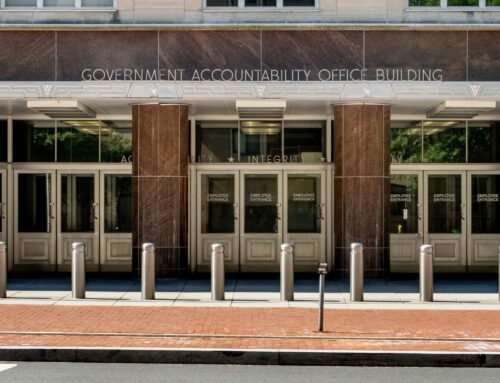The One Big Beautiful Bill Act (OBBBA), signed into law on July 4, makes sweeping changes to individual taxes. It delivers four of President Trump’s campaign promises: No Tax on Tips, No Tax on Overtime, No Tax on Car Loan Interest, and Trump Accounts. All four are temporary, set to expire in 2028, and together will cost taxpayers billions in lost revenue—far more if extended or made permanent.
Other provisions —such as tax credits for charitable donations and employer payments of student loans—are permanent. Several measures are projected to cost significantly more than their counterparts in the House-passed bill from May, and some provisions were added in conference that weren’t in the House version at all.
Summary of Individual Tax Provisions in the OBBBA
No Tax on Tips
What It Is: Allows workers in occupations the IRS designates as “customarily and regularly receiving tips” to deduct up to $25,000 in tips from their taxable income. Self-employed individuals cannot deduct more than their net income. The deduction phases out for individuals with modified adjusted gross income (MAGI) above $150,000 and joint filers above $300,000. A Social Security number is required to claim it. OBBBA directs the IRS to publish the qualifying occupations list by October 2, 2025, but specifies that customary tips in food, beverage, and beauty services are eligible.
When It Expires: Tax years 2025–2028.
Cost: The Joint Committee on Taxation (JCT) estimates the four-year deduction will cost $32 billion from FY2025–FY2034. The Congressional Budget Office (CBO) projects it would cost an additional $52 billion over the same period if made permanent.
No Tax on Overtime
What It Is: Lets individuals deduct up to $12,500, and joint filers up to $25,000, of “qualified overtime compensation.” The deduction phases out for individuals with MAGI above $150,000 and joint filers above $300,000. A Social Security number is required to claim it.
When It Expires: Tax years 2025–2028.
Cost: JCT estimates the provision will cost $90 billion from FY2025–FY2034. A similar House-passed version—without the $12,500/$25,000 cap—was projected at $124 billion. CBO projects making the deduction permanent would add another $137 billion in costs over the same period.
No Tax on Car Loan Interest
What It Is: Lets individuals and joint filers deduct up to $10,000 in interest payments on car loans for new vehicles. The deduction phases out for individuals with MAGI above $100,000 and joint filers above $200,000. Eligible vehicles must be for personal use, weigh less than 14,000 pounds, and complete “final assembly” in the United States. Commercial, leased, junk, used, fleet, and salvage-title vehicles do not qualify.
When It Expires: Tax years 2025–2028.
Cost: JCT estimates the deduction will cost $31 billion from FY2025–FY2034. The House-passed version—without some restrictions—was projected at $58 billion. CBO estimates making the OBBBA version permanent would add another $66 billion in costs over the same period.
Trump Accounts
What It Is: A new retirement account for individuals under age 18 with a Social Security number. Annual contributions are capped at $5,000 (adjusted for inflation), and withdrawals aren’t allowed until age 18. As part of a pilot program, $1,000 will be deposited into a Trump account for every child born between January 1, 2025, and December 31, 2028.
When It Expires: Pilot program runs from tax years 2025–2028.
Cost: JCT estimates the accounts and pilot program will cost $15 billion from FY2025–FY2034. CBO projects an additional $22 billion in costs if made permanent.
New Deduction for Seniors
What It Is: Before the Tax Cuts and Jobs Act (TCJA), taxpayers could claim personal exemptions of up to $4,050 per individual and dependent. TCJA suspended the personal exemption through 2025, replacing it with a much larger standard deduction. OBBBA permanently ends the personal exemption, extends the larger standard deduction, and temporarily increases it for seniors.
The new provision lets individuals 65 or older deduct an additional $6,000 beyond the existing senior deduction. Couples in which both spouses qualify can deduct $12,000. The deduction phases out for individuals with MAGI over $75,000 and joint filers over $150,000. Each person claiming the deduction must provide a Social Security number.
When It Expires: Tax years 2025–2028.
Cost: JCT estimates the senior deduction will cost $93 billion from FY2025–FY2034. The House-passed version was projected at $66 billion. CBO projects making the OBBBA version permanent would add another $129 billion in costs over the same period.
Adoption Tax Credit Refund
What It Is: Allows individuals and joint filers who claim the adoption tax credit to receive a refund of up to $5,000, indexed for inflation.
When It Expires: Permanent.
Cost: JCT projects the refund will cost $2 billion from FY2025–FY2034.
Increased Dependent Care Assistance Program Maximum Exclusion
What It Is: Raises the maximum exclusion from $5,000 to $7,500 for individuals and joint filers, and from $2,500 to $3,750 for married individuals filing separately. The program lets taxpayers exclude dependent care expenses—such as child care—from their taxable income. This increase was not in the House-passed version of OBBBA.
When It Expires: Permanent.
Cost: JCT estimates the change will cost $6 billion from FY2025–FY2034.
Exclusion for Employer Payments of Student Loans
What It Is: Allows individuals to exclude from taxable income up to $5,250 in student loan payments made by their employer, with the limit now indexed annually for inflation.
When It Expires: Permanent, effective in 2026.
Cost: JCT estimates the exclusion will cost $11 billion from FY2025–FY2034.
Child and Dependent Care Tax Credit Expansion
What It Is: Increases the maximum credit to 50% of expenses for taxpayers with adjusted gross income (AGI) of $15,000 or less. The credit phases down to 35% for AGI above $15,000, and to 20% for AGI above $75,000 (individuals) or $150,000 (joint filers). This expansion was not in the House-passed bill.
When It Expires: Permanent, effective in 2026.
Cost: JCT estimates the expansion will cost $9 billion from FY2025–FY2034.
Charitable Donation Tax Credit
What It Is: Allows individuals to claim a $1,000 credit and joint filers a $2,000 credit for charitable donations, provided they do not itemize deductions.
When It Expires: Permanent, effective in 2026.
Cost: JCT estimates the credit will cost $74 billion from FY2025–FY2034. The House-passed version was projected at $6 billion.
Scholarship Tax Credit
What It Is: Allows individuals and joint filers to claim up to $1,700 for donations to nonprofit organizations that provide scholarships to low-income elementary and secondary school students. Eligibility depends on whether the taxpayer’s state or district participates in the program.
When It Expires: Permanent.
Cost: JCT estimates the credit will cost $26 billion from FY2025–FY2034, compared to $20 billion for the House-passed version.
Permanent Extension of Safe Harbor for Absence of Deductible for Telehealth Services
What It Is: Removes the expiration date on the “safe harbor” allowing high-deductible health plans to cover telehealth and other remote care services before the deductible is met. Plans meeting this condition qualify as high-deductible health plans, and enrollees are eligible for health savings accounts (HSAs). This was not in the House-passed bill.
When It Expires: Permanent, effective immediately.
Cost: JCT estimates the provision will cost $4 billion from FY2025–FY2034.
Allowance of Bronze and Catastrophic Plans
What It Is: Permits ACA “Bronze Level” and “Catastrophic” plans offered on exchanges to be classified as high-deductible health plans, making enrollees eligible for HSAs.
When It Expires: Permanent, effective in 2026.
Cost: JCT estimates the provision will cost $3.5 billion from FY2025–FY2034.
New Treatment of Direct Primary Care Service Arrangements
What It Is: Bars direct primary care service arrangements from qualifying as high-deductible health plans eligible for HSAs and from being paid for with HSA funds. Certain lab services, prescription drugs, and procedures involving general anesthesia are excluded from the statutory definition of primary care services.
When It Expires: Permanent, effective in 2026.
Cost: JCT estimates the provision will cost $3 billion from FY2025–FY2034.









